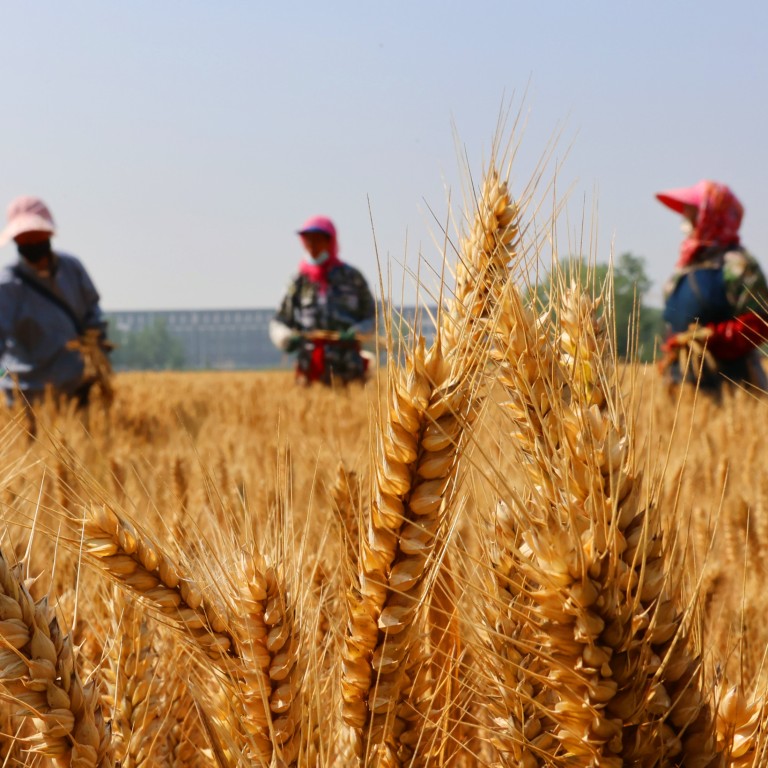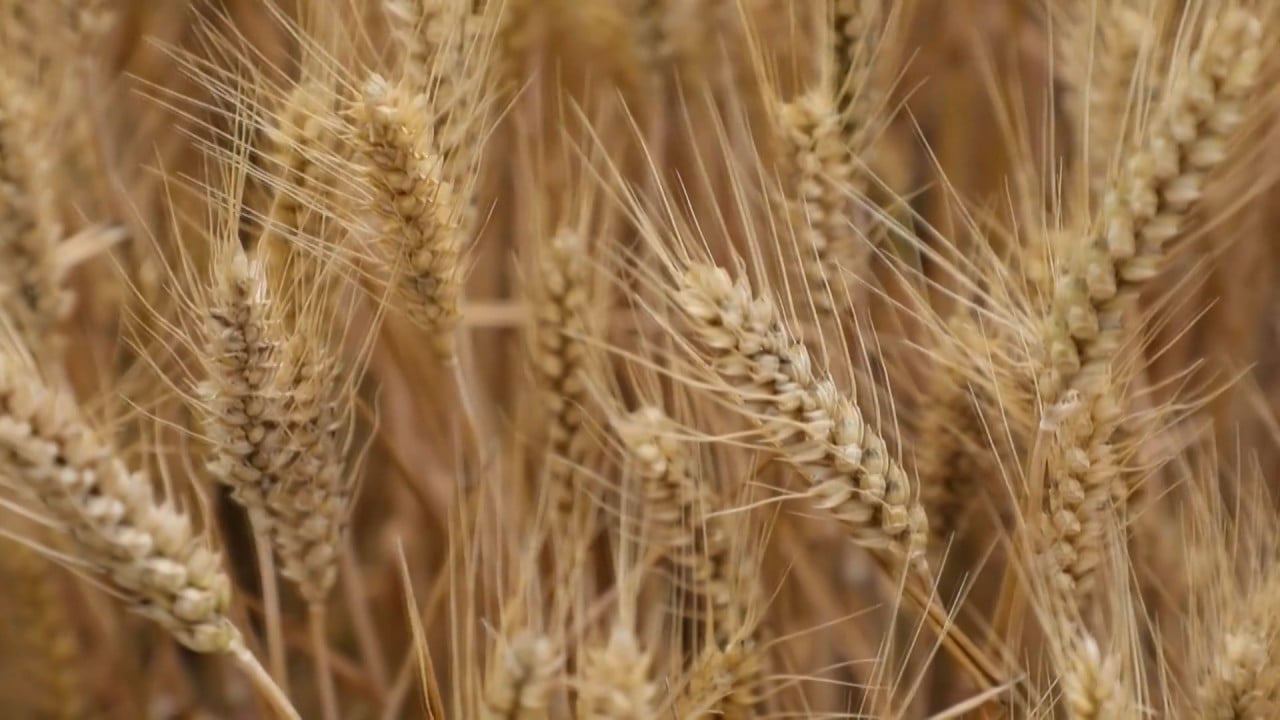
China food security: with new law, can Beijing reverse loss of arable land, or will policies go to seed at grass-roots level?
- Grain demand is rising across China, and internal and external pressures have emboldened leaders to take fresh measures
- But critics say rehashing existing policies could fail to address the root of the problem: productivity
Chinese lawmakers are deliberating a food-security law to improve the nation’s ability to avert risks in a critical area that leadership has been attaching increasing importance to amid global uncertainties.
The draft law, which was submitted to the Standing Committee of the National People’s Congress for its first reading on Monday, covers food-related issues that have been high on Beijing’s agenda in recent years, including farmland protection and grain production, party mouthpiece Xinhua said.
Beijing aims to achieve self-sufficiency by putting an emphasis on domestic supply amid heightened relations with the United States and its allies, which are China’s major agricultural suppliers, and because of the fallout from the Ukraine war.
China’s grain output last year was around 686.53 billion kg (1.51 trillion pounds), slightly above the 2021 level and setting a record high, according to the National Bureau of Statistics.
Last year was also the eighth consecutive year in which China registered a grain harvest of more than 650 billion kg, but it is getting harder to stabilise or increase that level, Minister of Justice He Rong said during the session, according to Xinhua.
The draft also calls for improving the emergency grain supply, promoting grain conservation, and reducing losses and waste – all weak links in China’s agriculture sector, Xinhua said.
Ma Wenfeng, a senior analyst with Beijing Orient Agribusiness Consultant, argued that the key to ensuring agricultural security is improving productivity – an area where China has made little progress over the past decade.
He also spoke critically of the new law, saying it is just a repetition of existing policies and could be fruitless, given the fact that the grass-roots implementation of policies is often insufficient.
“What we are seeing now is that the yields in experimental fields have reached a new high, but those for the vast fields run by ordinary farmers haven’t,” he said. “The gap between China and those advanced agricultural countries is enlarging in terms of per unit of output.
“Except for wheat, China is lagging farther behind in that aspect in most crops compared with the world’s major food exporters, such as the US, Canada and Australia.”
Currently, China has a few state-level regulations specifically on food distribution and food reserves, and some local governments have their own food-security regulations.
The central government also has a tradition of dedicating its first directive of the year to agriculture and rural areas to show its support.
A broad draft “Food Law” with similar content was issued in 2012 to solicit public opinion, but it has never followed up on. Lawmakers have also mulled over the latest “Food Security Law” since 2018, according to the NPC Standing Committee’s work plan that year.
The country passed a wide-ranging anti-food-waste law in 2021 after Xi deemed the issue a threat to food security. The law specifies fines on those who order more than needed at restaurants, and on broadcasters and streaming services found to be promoting binge eating.


